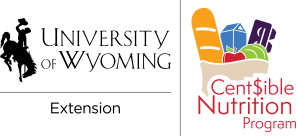
Gardening 101: Planning Your Garden
Garden season is coming to an end, but it is never too soon to start planning for next summer! Find our tips in this newsletter.

Garden season is coming to an end, but it is never too soon to start planning for next summer! Find our tips in this newsletter.

Prepare your garden for winter to help reduce the amount of work you’ll have next spring and protect it from pests and disease.

Potatoes, carrots, beets, onions- these root vegetables and others thrive in most Wyoming gardens. Root vegetables also store well without refrigeration.

Is your garden overflowing with veggies? Think about preserving your harvest to enjoy it all winter long.

Beans, beans, they are good for you and good for your garden too! There are many kinds of beans, and two varieties: bush and pole.

Sweet, green, and crunchy, is there anything better than eating snap peas straight out of the garden? Nope!

Summer squash are warm-season plants, such as zucchini, yellow crookneck, yellow straightneck (saffron), and pattypan.

Growing herb gardens on your windowsill is a way to keep your garden thumb green and add a touch of color and flavor to your plate.

Spinach, like lettuce, is a vegetable that likes cooler weather. It is also a power-house of nutrients.

Lettuce is a cool-season vegetable, which means it does well in spring and late summer when temperatures are cooler.

While insects may eat your plants, fungi and bacteria can be a problem too. Learn how to prevent and manage these issues in your garden.

Do you notice little holes that look like tiny bites taken out of your garden plants? They may be from insects eating your plants. Learn how to manage insect pests with these tips.

* The Cent$ible Nutrition Program is funded by USDA SNAP-Ed and EFNEP. SNAP-Ed assists individuals and families who receive, or are eligible to receive, benefits from the Supplemental Nutrition Assistance Program (SNAP). EFNEP assists families and youth with limited resources in acquiring the knowledge, skills, attitudes, and changed behaviors necessary for nutritionally sound diets and contributes to their personal development and the improvement of total family diet and nutritional welfare. Visit our Qualify page to learn more.
This material was funded by USDA’s Supplemental Nutrition Assistance Program – SNAP. This institution is an equal opportunity provider. This material was funded by USDA’s Expanded Food and Nutrition Education Program-EFNEP. USDA is an equal opportunity provider and employer. The full nondiscrimination statement can be found here.
Issued in furtherance of extension work, acts of May 8 and June 30, 1914, in cooperation with the U.S. Department of Agriculture. Kelly Crane, Director, University of Wyoming Extension, College of Agriculture and Natural Resources, University of Wyoming Extension, University of Wyoming, Laramie, Wyoming 82071.
The University of Wyoming is an equal opportunity/affirmative action institution.